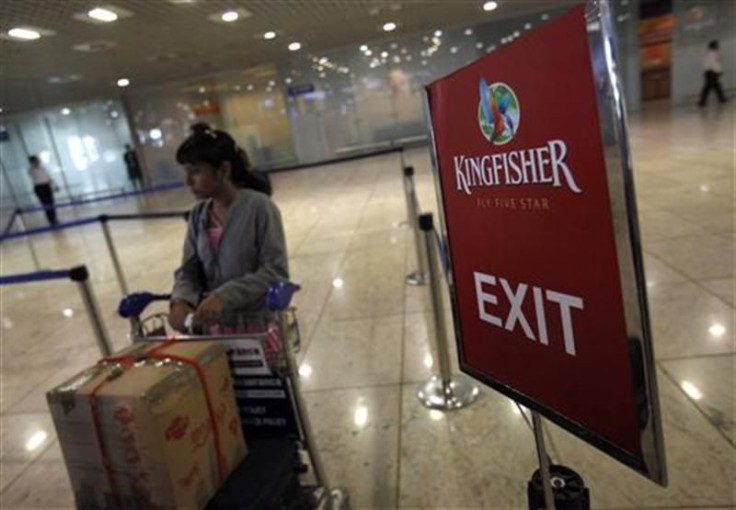Kingfisher Airlines Still in Trouble; Lenders Refuse to Extend Loans

Lenders to Kingfisher Airlines (KING.NS) have not agreed to extend further loans to the debt-crippled carrier, three banking sources said on Wednesday after reports that State Bank of India (SBI) was close to offering a bailout loan package.
Several newspapers reported that SBI would throw a lifeline to Kingfisher, which is owned by liquor baron Vijay Mallya, giving figures ranging from 2.0 to 16.5 billion rupees.
But banking sources, with direct knowledge of the situation, told Reuters the airline's consortium of 16 lenders, which includes SBI, were still studying a debt-restructuring proposal put forward last week. Banks own about a quarter of the carrier through an earlier debt-for-equity swap.
I don't think any individual bank can take a decision, said a source at the Punjab National Bank, India's second-largest public sector lender. It will have to be decided by the consortium.
SBI's chief financial officer, Diwakar Gupta, declined to comment on the reports of an imminent rescue package.
Desperately strapped for cash, Kingfisher Airlines stands on the brink of collapse after nearly a week of flight cancellations and the resignation of dozens of its pilots.
India's second-largest airline until this year, the company has not turned a profit since it was founded in 2005 and is carrying a debt burden of at least $1.3 billion.
Its revenue has been in decline since the end of last year. Staff is not being paid and tax bills remain outstanding. A tax official said the airline's arrears for financial 2011/12 were around 400 million rupees.
NO GOVERNMENT LIFELINE
Mallya has blamed his cash crunch on the tax authorities, which last week froze Kingfisher's bank accounts over its unpaid dues. On Wednesday, Finance Secretary R.S. Gujral denied media reports that the accounts had been unblocked.
Civil Aviation Minister Ajit Singh said Kingfisher Airlines could not expect the government to pull it back from the brink, as it did state-owned Air India.
The government is not going to bail it out, but we hope Kingfisher can mobilise its resources somehow because if they don't then there will be more problems for the passengers, he told reporters.
We have made it very clear, and I'm sure Mr. Mallya knows that Air India is a government concern. Whatever help we give them, we cannot do it to any private industry.
Still, the government faces a dilemma over Kingfisher because it owns about one-fifth of its shares and roughly three-quarters of its debt through lenders.
There are no provisions for companies to declare themselves legally bankrupt in India. Analysts said Kingfisher could simply shut down overnight if it fails to secure fresh equity that would shore up the sagging confidence of its creditors.
Kingfisher shares, which plunged nearly 20 percent on Tuesday before recovering, were slightly higher on Wednesday after the media reports that fresh loans were on the way.
Kingfisher will now operate 175 daily flights, down from 240 on Friday, a government source said. Only 28 of its fleet of 64 planes will be used. The aviation regulator has deregistered the carrier's 2 ATR planes at the lessor's request, he said.
The regulator has also asked other airlines to accommodate passengers stranded by the cancellations, the government source said. State-run carrier Air India has refused to carry Kingfisher passengers on credit.
Mallya is also chairman of United Breweries (Holdings) (UBHL.NS), a conglomerate with interests as diverse as aviation, breweries, biotechnology and real estate. The group has annual sales of more than $4 billion.
His airline - named after his famous brand of Indian beer - has become one of the main casualties of high fuel costs and a fierce price war between a handful of budget carriers which, between them, ordered hundreds of aircraft for delivery over the next decade in an ambitious bet on the future.
Five out of six major carriers are losing money, and analysts estimate that the industry overall is on course to lose up to $3 billion for the financial year ending next month.
Shares in Kingfisher have dropped around 60 percent since the start of last year, shrinking its market value to $269 million. Its domestic market share has almost halved in recent months from about 20 percent.
Mallya, an independent member of the Rajya Sabha, has blamed rules that bar foreign direct investment in Indian carriers and higher taxes on fuel for the industry's troubles. The government is now debating a proposal to allow foreign airlines acquire stake of up to 49 percent.
© Copyright Thomson Reuters 2024. All rights reserved.





















